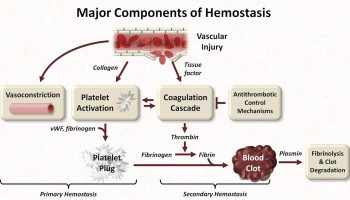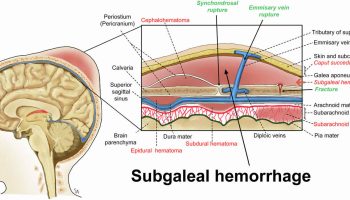Causes of difficulty in breathing
Difficulty breathing or shortness of breath is known medically as dyspnea — is often described as an intense tightening in the chest, air hunger or a feeling of suffocation.
Breathing difficulties can range from:
- Being short of breath
- Being unable to take a deep breath and gasping for air
- Feeling like you are not getting enough air
- Uncomfortable breathing
Breathing difficulty is almost always a medical emergency. An exception is feeling slightly winded from normal activity, such as exercise.
Very strenuous exercise, extreme temperatures, massive obesity and high altitude all can cause difficulty breathing or shortness of breath in a healthy person. Outside of these examples, difficulty breathing is likely a sign of a medical problem.
If you have unexplained difficulty breathing, especially if it comes on suddenly and is severe, see your doctor as soon as possible.
Difficulty breathing or shortness of breath might not be anything to worry about like a cold or chest infection, being overweight, and smoking. Difficulty breathing can also be a sign of a panic attack, but sometimes it can be serious and you’ll need to get medical help.
Shortness of breath has lots of different causes. Most cases of difficulty breathing are due to heart or lung conditions. Your heart and lungs are involved in transporting oxygen to your tissues and removing carbon dioxide, and problems with either of these processes affect your breathing.
Any treatment you may need depends on what’s causing your symptoms.
Don’t try to self-diagnose the cause of your shortness of breath – always see a medical professional.
Difficulty breathing or shortness of breath that comes on suddenly (called acute) has a limited number of causes, including:
- Asthma (bronchospasm)
- Carbon monoxide poisoning
- Cardiac tamponade (excess fluid around the heart)
- Heart attack
- Heart failure
- Low blood pressure (hypotension)
- Pneumonia (and other pulmonary infections)
- Pneumothorax (collapsed lung)
- Pulmonary embolism (blood clot in an artery in the lung)
- Sudden blood loss
- Upper airway obstruction (blockage in the breathing passage)
In the case of difficulty breathing that has lasted for weeks or longer (called chronic), the condition is most often due to:
- Asthma
- COPD (chronic obstructive pulmonary disease)
- Deconditioning
- Heart dysfunction
- Interstitial lung disease
- Obesity
A number of other health conditions also cause breathing problems. These include:
Lung problems
- Croup (especially in young children)
- Lung cancer
- Pleurisy (inflammation of the membrane surrounding the lungs)
- Pulmonary edema (excess fluid in the lungs)
- Pulmonary fibrosis (scarred and damaged lungs)
- Pulmonary hypertension (high blood pressure within the lungs’ blood vessels)
- Sarcoidosis (collections of inflammatory cells in the body)
- Tuberculosis
Heart problems
- Cardiomyopathy (problem with the heart muscle)
- Heart arrhythmias (heart rhythm problems)
- Heart failure
- Pericarditis (inflammation of the tissue around the heart)
Other problems
- Anemia
- Broken ribs
- Choking: First aid
- Epiglottitis (swelling of the “lid” of your windpipe)
- Foreign object inhaled: First aid
- Generalized anxiety disorder
- Guillain-Barre syndrome
- Myasthenia gravis (condition causing muscle weakness)
Call your local emergency services number if you’re struggling to breathe or have sudden difficulty breathing and:
- Your chest feels tight or heavy
- You have pain that spreads to your arms, back, neck and jaw
- You feel or are being sick
You could be having a heart attack or a problem with your lungs (pulmonary embolism) or airway. Call your local emergency services number immediately as you need treatment in hospital.
If someone is having breathing difficulty, call your local emergency services number right away, then:
- Check the person’s airway, breathing, and pulse. If necessary, begin cardiopulmonary resuscitation (CPR).
- Loosen any tight clothing.
- Help the person use any prescribed medicine (an asthma inhaler or home oxygen).
- Continue to monitor the person’s breathing and pulse until medical help arrives. DO NOT assume that the person’s condition is improving if you can no longer hear abnormal breath sounds, such as wheezing.
- If there are open wounds in the neck or chest, they must be closed immediately, especially if air bubbles appear in the wound. Bandage such wounds at once.
- A “sucking” chest wound allows air to enter the person’s chest cavity with each breath. This can cause a collapsed lung. Bandage the wound with plastic wrap, a plastic bag, or gauze pads covered with petroleum jelly, sealing it except for one corner. This allows trapped air to escape from the chest, but it prevents air from entering the chest through the wound.
DO NOT:
- Give the person food or drink.
- Move the person if there has been a head, neck, chest or airway injury, unless it is absolutely necessary. Protect the neck if the person must be moved.
- Place a pillow under the person’s head. This can close the airway.
- Wait to see if the person’s condition improves before getting medical help. Get help immediately.
See your doctor if you have difficulty breathing and:
- it’s lasted for longer than a month
- it gets worse when you’ve been active
- it gets worse when you lie down (at night)
- you’ve been coughing for 3 weeks or more
- you’ve got swollen ankles and feet
- you’ve high fever, chills and cough
- you’ve wheezing
- you’ve worsening of pre-existing shortness of breath
It’s important to get medical advice to make sure it’s nothing serious. You’re not wasting anyone’s time by getting it checked out.
Also see your health care provider right away if you:
- Have a cold or other respiratory infection and are having difficulty breathing
- Have a cough that does not go away after 2 or 3 weeks
- Are coughing up blood
- Are losing weight without meaning to or having night sweats
- Cannot get to sleep or wake up at night because of breathing difficulty
- Notice it is hard to breathe when doing things that you normally do without breathing difficulty, for example, climbing stairs
Also see your provider if your child has a cough and is making a barking sound.
Difficulty breathing at night
Breathing difficulty while lying down is an abnormal condition in which a person has a problem breathing normally when lying flat. The head must be raised by sitting or standing to be able to breathe deeply or comfortably.
A type of breathing difficulty while lying down is paroxysmal nocturnal dyspnea. This condition causes a person to wake up suddenly during the night feeling short of breath.
Breathing difficulty while lying down is a common complaint in people with some types of heart or lung problems. Sometimes the problem is subtle. People may only notice it when they realize that sleep is more comfortable with lots of pillows under their head, or their head in a propped-up position.
- If you have any unexplained difficulty in breathing while lying down, it’s important see your doctor.
Breathing problems at night causes
Difficulty breathing at night causes may include:
- Chronic obstructive pulmonary disease (COPD)
- Cor pulmonale
- Heart failure
- Obesity (does not directly cause difficulty breathing while lying down but often worsens other conditions that lead to it)
- Panic disorder
- Sleep apnea
- Snoring
What to expect at your doctor office visit
Your doctor will perform a physical exam and ask questions about the problem.
Questions may include:
- Did this problem develop suddenly or slowly?
- Is it getting worse (progressive)?
- How bad is it?
- How many pillows do you need to help you breathe comfortably?
- Is there any ankle, feet, and leg swelling?
- Do you have difficulty breathing at other times?
- How tall are you? How much do you weigh?
- What other symptoms do you have?
The physical exam will include special attention to the heart and lungs (cardiovascular and respiratory systems).
Tests that may be performed include the following:
- Chest x-ray
- ECG
- Echocardiogram
- Pulmonary function tests
Treatment depends on the cause of the breathing problem. You may need to use oxygen.
Breathing problems symptoms
People having breathing difficulty will often look uncomfortable. They may be:
- Breathing rapidly
- Unable to breathe lying down and need to sit up to breathe
- Very anxious and agitated
- Sleepy or confused
They might have other symptoms, including:
- Dizziness
- Pain
- Fever
- Cough
- Nausea
- Vomiting
- Bluish lips, fingers, and fingernails
- Chest moving in an unusual way
- Gurgling, wheezing, or making whistling sounds
- Muffled voice or difficulty speaking
- Coughing up blood
- Rapid or irregular heartbeat
- Sweating
If an allergy is causing the breathing problem, they might have a rash or swelling of the face, tongue, or throat.
If an injury is causing breathing difficulty, they might be bleeding or have a visible wound.
Difficulty breathing prevention
Some things you can do to help prevent breathing problems:
- If you have a history of severe allergic reactions, carry an epinephrine pen and wear a medical alert tag. Your provider will teach you how to use the epinephrine pen.
- If you have asthma or allergies, eliminate household allergy triggers like dust mites and mold.
- DO NOT smoke, and keep away from secondhand smoke. DO NOT allow smoking in your home.
- If you have asthma, see the article on asthma to learn ways to manage it.
- Make sure your child gets the whooping cough (pertussis) vaccine.
- Make sure your tetanus booster is up to date.
- When traveling by airplane, get up and walk around every few hours to avoid forming blood clots in your legs. While seated, do ankle circles and raise and lower your heels, toes, and knees to increase blood flow in your legs. Clots can break off and lodge in your lungs. If traveling by car, stop and get out and walk around regularly.
- If you are overweight, lose weight. You are more likely to feel winded if you are overweight. You are also at greater risk for heart disease and heart attack.
Wear a medical alert tag if you have a pre-existing breathing condition, such as asthma.
Breathing problems remedies
To help keep chronic shortness of breath from getting worse:
- Stop smoking. Once you’re tobacco-free, your risks of heart and lung disease and cancer begin to drop — even if you’ve been smoking for years.
- Avoid exposure to pollutants. As much as possible, avoid breathing allergens and environmental toxins.
- Lose weight if you are overweight.
- Take care of yourself. If you have an underlying medical condition, take care of it.
- Have an action plan. Discuss with your doctor what to do if your symptoms become worse.
- Keep elevation in mind. Avoid exertion at elevations higher than 5,000 feet (1,524 meters).
- Regularly check your equipment. If you rely on supplemental oxygen, be sure your supply is adequate and the equipment works properly.





